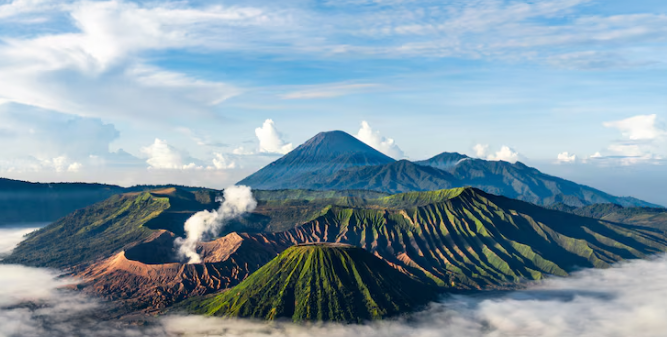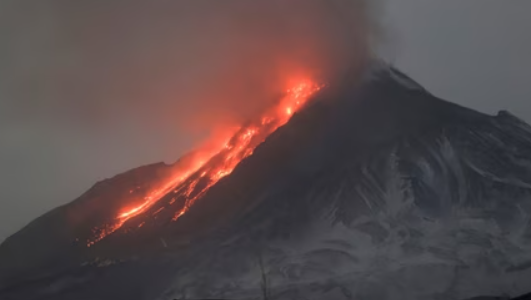
What if one eruption could cool the entire planet?
If you’re wondering how a single volcanic explosion could affect something as vast as Earth’s climate, you’re not alone. Many people crave clarity on how eruptions like the recent Kamchatka event could send shockwaves through the weather systems—and even cool global temperatures. Keep reading to uncover how these fiery blasts affect our skies, our seasons, and maybe even your next vacation.
Why This Topic Matters More Than You Think
The Kamchatka Peninsula in Russia recently experienced a massive volcanic eruption that spewed tons of ash and sulfur dioxide into the atmosphere. While such eruptions seem like isolated natural disasters, they can trigger long-term climate changes by reflecting sunlight away from the Earth and lowering global temperatures. This is not science fiction . . . it’s science fact.
The Other Side: Isn’t This Just Temporary?
Skeptics argue that volcanoes might seem dramatic, but their climate impact is short-lived and exaggerated. After all, weather patterns fluctuate all the time, right?
Sure. But here’s where it gets interesting:
“Large volcanic eruptions can cause measurable global cooling for up to two years,”
according to NASA’s Earth Observatory.
In fact, the 1991 Mount Pinatubo eruption caused the Earth’s average temperature to drop by about 0.6°C globally for more than a year (USGS). That’s not a shrug—it’s a real, trackable shift.
How Does This Work, Exactly?
When volcanoes erupt, they don’t just toss out lava. They inject sulfur dioxide into the stratosphere, which then forms sulfate aerosols. These aerosols act like microscopic mirrors that reflect sunlight back into space.
As a result, less sunlight reaches the Earth’s surface, leading to a cooling effect that can last for months or even years.
“Volcanic eruptions are like nature’s version of geoengineering,”
says Dr. Alan Robock, a climatologist who studies volcanic effects on climate
(Rutgers University).
And it’s not just the cooling . . . the ash clouds can affect rainfall, crop cycles, and even jet streams.
Kamchatka: A Cold Reminder
The 2025 Kamchatka eruption was powerful enough to send ash plumes 15 kilometers into the atmosphere. It disrupted air travel, darkened skies, and led to tsunami warnings across the Pacific, including Hawaii and Japan.
However, the quieter, long-term impact might be on global temperature.
“This explainer on volcanic eruptions and climate shows why watching volcanoes isn’t just for disaster nerds, it’s for anyone who eats food, flies planes, or lives on Earth.”
Kamchatka could become the next case study in how one eruption changes the world. It may not cause another Ice Age . . . but your winter coat might get a little more use.
But Wait-Volcanoes Warm the Earth Too?
Another view suggests that volcanoes also release CO₂, a greenhouse gas that contributes to warming. And yes, they do . . . but the amount of CO₂ emitted by volcanoes is dwarfed by what humans produce through fossil fuels.
“Volcanic CO₂ emissions amount to less than 1% of human emissions annually,”
according to the British Geological Survey.
So, while the warming from volcanoes is real, it’s not enough to offset the cooling from sulfate aerosols. If anything, it’s a short battle with a clear winner.
So What Does This Mean for You?
- You might see cooler summers or harsher winters in the next few years.
- Agricultural zones may shift temporarily, affecting food prices.
- Global warming may get a short-term pause, but not a permanent fix.
And if you’re planning a vacation, maybe wait before booking that tropical getaway. Jet streams could shift flights, and ash clouds may still be floating around.
Final Thoughts: Earth’s Fiery Air Conditioner
Volcanoes like Kamchatka remind us that our planet is active, unpredictable, and sometimes its own best climate engineer. But they’re not a reliable solution to global warming.
They’re like a reset button with consequences.
So the next time you hear about a volcano erupting across the world, don’t just think lava. Think weather, crops, jet streams, and climate. Because the air you’re breathing tomorrow could be shaped by an eruption today.
Sources:
- NASA Earth Observatory:
https://earthobservatory.nasa.gov/features/Volcano - USGS on Mount Pinatubo:
https://www.usgs.gov/observatories/hvo/news/volcano-watch-mount-pinatubos-effects-climate - Rutgers University Dr. Alan Robock’s work on volcanic climate effects:
https://climate.rutgers.edu/robock - British Geological Survey on volcanic CO₂:
https://www.bgs.ac.uk/discovering-geology/volcanoes/volcanoes-and-climate/




